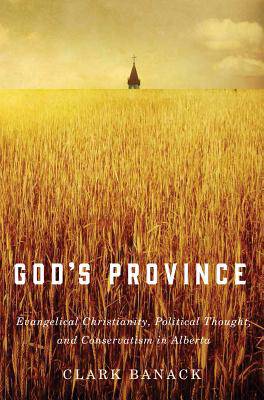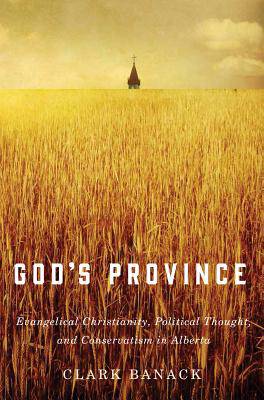
- Afhalen na 1 uur in een winkel met voorraad
- Gratis thuislevering in België vanaf € 30
- Ruim aanbod met 7 miljoen producten
- Afhalen na 1 uur in een winkel met voorraad
- Gratis thuislevering in België vanaf € 30
- Ruim aanbod met 7 miljoen producten
Zoeken
God's Province
Evangelical Christianity, Political Thought, and Conservatism in Alberta
Clark Banack
Hardcover | Engels
€ 44,95
+ 89 punten
Omschrijving
Compared to the United States, it is assumed that religion has not been a significant factor in Canada's political development. In God's Province, Clark Banack challenges this assumption, showing that, in Alberta, religious motivation has played a vital role in shaping its political trajectory. For Henry Wise Wood, president of the United Farmers of Alberta from 1916 until 1931, William Bible Bill Aberhart, founder of the Alberta Social Credit Party and premier from 1935 until 1943, Aberhart's protégé Ernest Manning, Alberta's longest serving premier (1943-1968), and Manning's son Preston, founder of the Alberta-based federal Reform Party of Canada, religion was central to their thinking about human agency, the purpose of politics, the role of the state, the nature of the economy, and the proper duties of citizens. Drawing on substantial archival research and in-depth interviews, God's Province highlights the strong link that exists between the religiously inspired political thought and action of these formative leaders, the US evangelical Protestant tradition from which they drew, and the emergence of an individualistic, populist, and anti-statist sentiment in Alberta that is largely unfamiliar to the rest of Canada. Covering nearly a century of Alberta's history, Banack offers an illuminating reconsideration of the political thought of these leaders, the goals of the movements they led, and the roots of Alberta's distinctiveness within Canada. A fusion of religious history, intellectual history, and political thought, God's Province exposes the ways in which individual politicians have shaped one province's political culture.
Specificaties
Betrokkenen
- Auteur(s):
- Uitgeverij:
Inhoud
- Aantal bladzijden:
- 296
- Taal:
- Engels
Eigenschappen
- Productcode (EAN):
- 9780773547148
- Verschijningsdatum:
- 13/05/2016
- Uitvoering:
- Hardcover
- Formaat:
- Genaaid
- Afmetingen:
- 150 mm x 231 mm
- Gewicht:
- 580 g

Alleen bij Standaard Boekhandel
+ 89 punten op je klantenkaart van Standaard Boekhandel
Beoordelingen
We publiceren alleen reviews die voldoen aan de voorwaarden voor reviews. Bekijk onze voorwaarden voor reviews.











